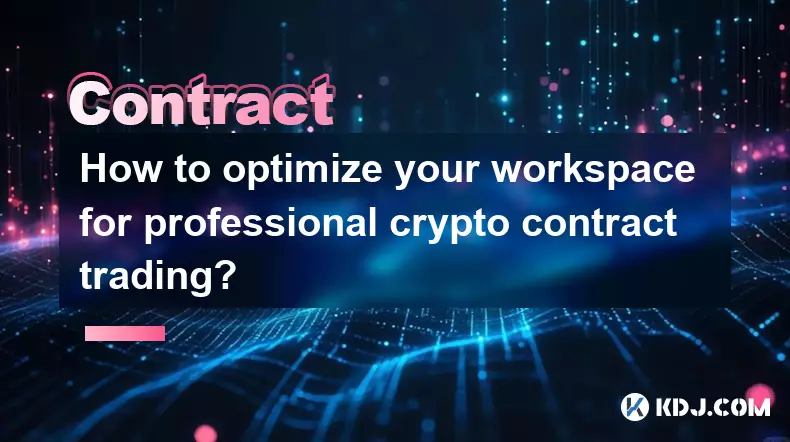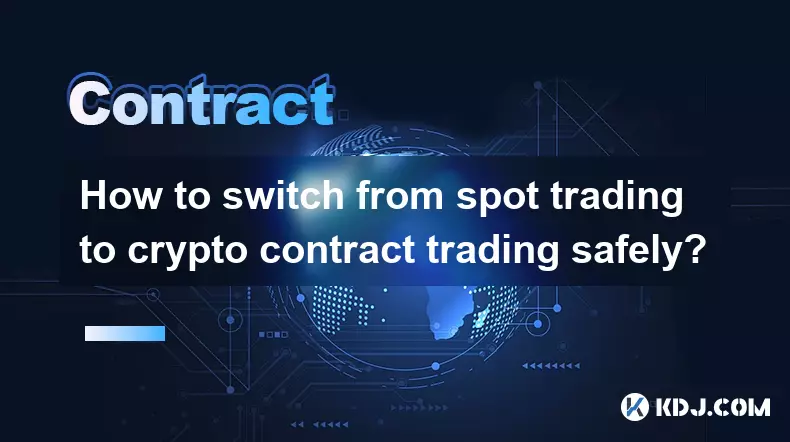-
 bitcoin
bitcoin $87959.907984 USD
1.34% -
 ethereum
ethereum $2920.497338 USD
3.04% -
 tether
tether $0.999775 USD
0.00% -
 xrp
xrp $2.237324 USD
8.12% -
 bnb
bnb $860.243768 USD
0.90% -
 solana
solana $138.089498 USD
5.43% -
 usd-coin
usd-coin $0.999807 USD
0.01% -
 tron
tron $0.272801 USD
-1.53% -
 dogecoin
dogecoin $0.150904 USD
2.96% -
 cardano
cardano $0.421635 USD
1.97% -
 hyperliquid
hyperliquid $32.152445 USD
2.23% -
 bitcoin-cash
bitcoin-cash $533.301069 USD
-1.94% -
 chainlink
chainlink $12.953417 USD
2.68% -
 unus-sed-leo
unus-sed-leo $9.535951 USD
0.73% -
 zcash
zcash $521.483386 USD
-2.87%
How to close KuCoin contract
Closing a KuCoin perpetual contract involves identifying your position, selecting between closing by position or order, and carefully monitoring the execution process to manage risk and potential losses.
Nov 10, 2024 at 07:16 pm

Closing a KuCoin contract involves several key steps to ensure a successful and efficient process. Whether you're a seasoned trader or new to the world of contract trading, it's crucial to understand the steps involved in closing a contract on the KuCoin platform. This comprehensive guide will provide you with a step-by-step breakdown of the process, addressing potential questions and offering insights to help you navigate the platform seamlessly.
Step 1: Understanding Contract PositionsBefore closing a contract, it's essential to have a clear understanding of your current position. KuCoin offers two types of contracts: perpetual and futures. Perpetual contracts do not have an expiration date, while futures contracts have a specific expiry date. Identify the type of contract you hold and the underlying asset it represents.
Step 2: Deciding the Closure StrategyThere are two primary methods for closing a contract: closing by position or by order. Closing by position involves directly closing your open position at the current market price. Closing by order allows you to set a specific price at which you want to close your contract, giving you more control over the closure process.
Step 3: Closing by Position- Navigate to the "Contracts" section of the KuCoin website or mobile app.
- Select the "Open Orders" tab.
- Locate the contract you wish to close and click on the "Close" button.
- Review the details of the closure, including the closing price and quantity.
- Confirm the closure by clicking on the "Close Position" button.
- Follow the steps mentioned in Step 3 to navigate to the "Open Orders" tab.
- Click on the "Limit" order type.
- Enter the desired closing price in the "Price" field.
- Specify the quantity of the contract you want to close.
- Click on the "Create Order" button.
- Monitor the order status until it is filled at your desired price.
Once you have initiated the closure process, it's important to monitor its execution. KuCoin provides real-time updates on the status of your orders. You can track the order's progress through the "Orders" section of the platform. If the order is not filled immediately, it will remain active in the order book until it is executed or canceled.
Step 6: Managing RiskClosing a contract involves managing risk and potential losses. Before closing a position, consider the current market conditions, the price of the underlying asset, and your risk tolerance. Setting stop-loss orders or taking profits when appropriate can help mitigate losses and secure gains.
Step 7: Understanding FeesKuCoin charges trading fees for opening and closing contracts. These fees vary depending on the type of contract, the underlying asset, and the trading volume. Familiarize yourself with the fee structure to accurately calculate your potential profits or losses.
Additional Tips for Closing KuCoin Contracts- Use the KuCoin community and support channels to seek assistance if needed.
- Practice closing positions in a simulated trading environment before executing real trades.
- Stay informed about the latest market trends and contract updates.
- Consider the potential risks and rewards associated with contract trading.
Disclaimer:info@kdj.com
The information provided is not trading advice. kdj.com does not assume any responsibility for any investments made based on the information provided in this article. Cryptocurrencies are highly volatile and it is highly recommended that you invest with caution after thorough research!
If you believe that the content used on this website infringes your copyright, please contact us immediately (info@kdj.com) and we will delete it promptly.
- Crypto Crossroads: Bitcoin Price Reacts to Fed Jitters Amidst Shifting Sands
- 2026-02-02 05:05:02
- Justin Sun, Tron, Manipulation Allegations: New Bitcoin Strategy Meets Lingering Controversy
- 2026-02-02 05:05:02
- Bitcoin Eyes $77K as Michael Saylor Reaffirms Unwavering Conviction Amidst Market Swings
- 2026-02-02 05:00:02
- Altcoin Season on the Horizon? ETH, XRP, SOL, ADA Face Potential 184x Gains Amidst Shifting Crypto Landscape
- 2026-02-02 05:00:02
- Bitcoin ETF News: Latest Updates Drive Investment and Market Dynamics
- 2026-02-02 04:50:02
- Rare Royal Mint Coin Error Fetches Over £100: The 'Fried Egg' £1 Coin Phenomenon
- 2026-02-02 04:45:01
Related knowledge

How to close a crypto contract position manually or automatically?
Feb 01,2026 at 11:19pm
Manual Position Closure Process1. Log into the trading platform where the contract is active and navigate to the 'Positions' or 'Open Orders' tab. 2. ...

How to understand the impact of Bitcoin ETFs on crypto contracts?
Feb 01,2026 at 04:19pm
Bitcoin ETFs and Market Liquidity1. Bitcoin ETFs introduce institutional capital directly into the spot market, increasing order book depth and reduci...

How to trade DeFi contracts during the current liquidity surge?
Feb 01,2026 at 07:00am
Understanding Liquidity Dynamics in DeFi Protocols1. Liquidity surges in DeFi are often triggered by coordinated capital inflows from yield farming in...

How to trade micro-cap crypto contracts with high growth potential?
Feb 01,2026 at 02:20pm
Understanding Micro-Cap Crypto Contracts1. Micro-cap crypto contracts refer to derivative instruments tied to tokens with market capitalizations under...

How to optimize your workspace for professional crypto contract trading?
Feb 01,2026 at 08:20pm
Hardware Infrastructure Requirements1. High-frequency crypto contract trading demands ultra-low latency execution. A dedicated workstation with a mini...

How to switch from spot trading to crypto contract trading safely?
Feb 01,2026 at 03:59pm
Understanding the Core Differences Between Spot and Contract Trading1. Spot trading involves the immediate exchange of cryptocurrencies for fiat or ot...

How to close a crypto contract position manually or automatically?
Feb 01,2026 at 11:19pm
Manual Position Closure Process1. Log into the trading platform where the contract is active and navigate to the 'Positions' or 'Open Orders' tab. 2. ...

How to understand the impact of Bitcoin ETFs on crypto contracts?
Feb 01,2026 at 04:19pm
Bitcoin ETFs and Market Liquidity1. Bitcoin ETFs introduce institutional capital directly into the spot market, increasing order book depth and reduci...

How to trade DeFi contracts during the current liquidity surge?
Feb 01,2026 at 07:00am
Understanding Liquidity Dynamics in DeFi Protocols1. Liquidity surges in DeFi are often triggered by coordinated capital inflows from yield farming in...

How to trade micro-cap crypto contracts with high growth potential?
Feb 01,2026 at 02:20pm
Understanding Micro-Cap Crypto Contracts1. Micro-cap crypto contracts refer to derivative instruments tied to tokens with market capitalizations under...

How to optimize your workspace for professional crypto contract trading?
Feb 01,2026 at 08:20pm
Hardware Infrastructure Requirements1. High-frequency crypto contract trading demands ultra-low latency execution. A dedicated workstation with a mini...

How to switch from spot trading to crypto contract trading safely?
Feb 01,2026 at 03:59pm
Understanding the Core Differences Between Spot and Contract Trading1. Spot trading involves the immediate exchange of cryptocurrencies for fiat or ot...
See all articles










































































